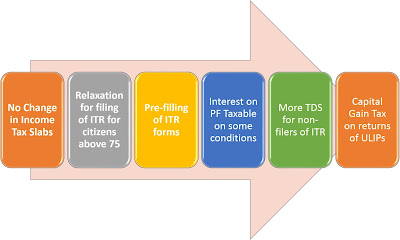Income Tax on Gifts
Are you planning
to gift a relative, to save income tax?
Yes, it is a good option to save income tax. In India, anyone can
gift to others for saving taxes in his hands. The money given as a gift is not
considered the income of the recipient if he is relative to the person giving the
gift.
But it is required to remember that such amount will be clubbed in
the taxable income of the person giving the gift as it will not be taxable in
the hands of recipients.
For example, the taxable income of Mr. A is Rs. 10 Lacs and he gifted Rs. 2 Lacs to his daughter-in-law or his spouse. Will there be any tax savings?
Since the gift is given to a relative, it will not be taxable in the hands of the recipient, therefore it will not be clubbed in the income of Mr. A and his taxable income will remain Rs. 10 Lacs. There will be no tax implication of giving such a gift in the year in which it is given. But in the following year, the interest earned on such gifted money will be taxable in the hands of the recipient and not in the hands of Mr. A.
Never accept Cash
Gift of money above Rs. 2 Lacs
The amount up to Rs. 2 Lacs can be accepted as a gift but the amount
above Rs. 2 Lacs in Cash form, cannot be accepted as a gift. If a person accepts
that he received an amount in cash as a gift from someone either relative or
anybody, the income tax department may impose a penalty up to the amount received
as a gift.
Income tax on gifts received from persons other than relatives
The relatives can give gifts without any limit however the gift
should be given either using cheque or electronic fund transfer and cash gifts
should be avoided.
But in case, gifts are given or received for other than relatives,
then how to treat in the income tax return? Whether it is an income of the recipient
or not?
A person who receives gifts of an amount up to Rs. fifty
thousand is not taxable in his hands but if the amount becomes more than Rs.
fifty thousand then the whole amount of gift will be taxable and included in income
from other sources as per Section 56(2) (x) of the income tax act.
For example, Mr. A received gifts from nonrelatives, Mr. B and Mr.
C and the amount is Rs. 45000 then it will not be included in the taxable
income however if the amount of gift is above Rs. 50000, then it will be
included in the taxable income of Mr. A.
In case, a person is not including the income of gifts in taxable
income in such circumstances, then it will be treated as Tax evasion.
Who is relative and who is not relative for accepting gifts under the income tax act?
While accepting or giving the gift, the tax implications depend upon
the relationship between the tax giver and tax recipient. The relatives cover
mother, father, brother, sister, spouse, brother and sister of parents, brother
and sister of parents in law, brother and sister os spouse, the person who is
lineal ascendant or descendant of person or spouse, and also the spouse of the
relatives mentioned as relative above.
It is worth mentioning that the person receiving any gift or
giving any gift should maintain a record of it, justifying the source of
money given as a gift to others.
It is found in many cases, the money which is not accounted as
white money is given as a gift, and the person giving the such gift will be held
responsible for it.
Are you interested in an Online Course related to Income Tax?:
1. https://smartinstituterls.blogspot.com/2022/12/income-tax-matters-in-government.html
2. https://smartinstituterls.blogspot.com/2022/12/computation-of-income-tax-liability.html
*Copyright © 2021 Dr. Lalit Kumar. All rights reserved.


















